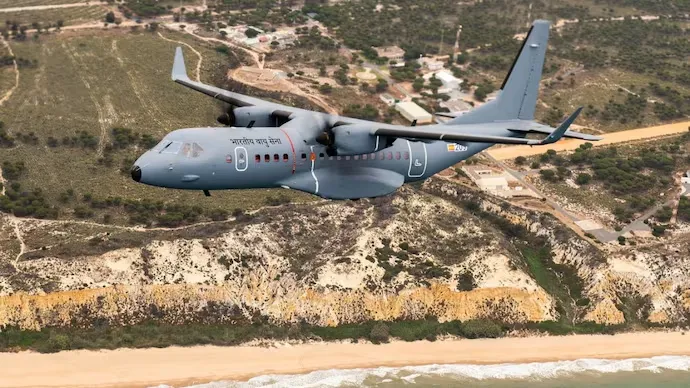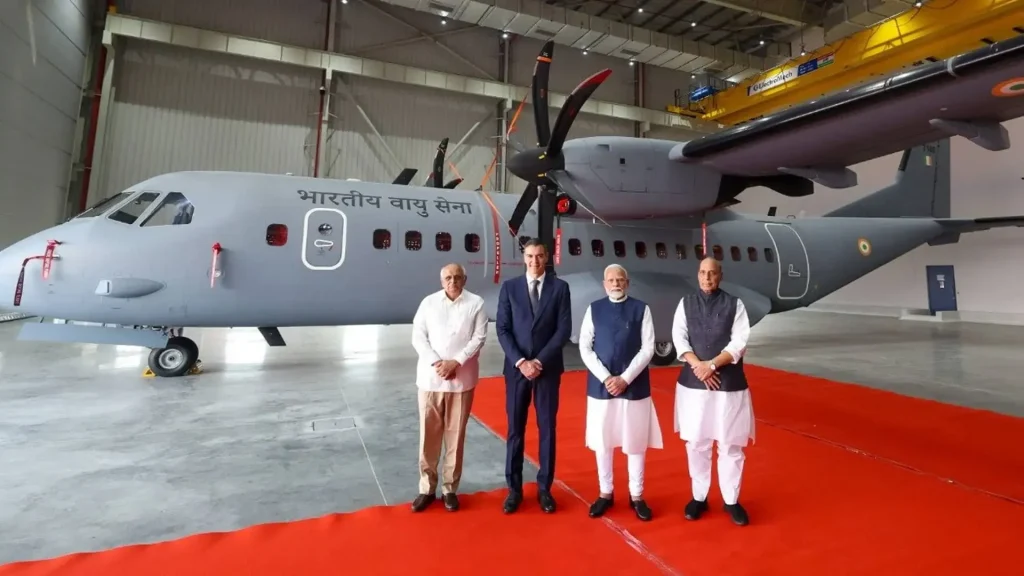The Tata-Airbus C295 project, India’s first private military aircraft production facility, is more than a manufacturing plant. Located in Vadodara, Gujarat, it represents a powerful shift for India’s defense capabilities, self-reliance in aerospace, job creation, and positioning in the global aviation industry. Here’s why the C295 aircraft project is truly a game changer for India.

1. Major Upgrade for Indian Defense Capabilities
The C295 aircraft brings advanced tactical airlift capabilities to the Indian Air Force (IAF), which has relied on older Soviet-era aircraft. Designed by Airbus Defence and Space, the C295 can handle varied missions such as troop and cargo transport, medical evacuation, and maritime patrol. Its ability to take off from short and rugged runways makes it a critical asset for operations along India’s borders, including challenging terrains near the Line of Actual Control (LAC) with China. This versatile aircraft greatly enhances the IAF’s operational flexibility and readiness.
2. Powering the ‘Make in India’ Initiative
As the cornerstone of India’s ‘Make in India’ movement, the C295 project demonstrates India’s growing self-sufficiency in defense manufacturing. Out of 56 aircraft planned, the first 16 will arrive from Spain, while the remaining 40 will be made entirely in India by Tata Advanced Systems Limited (TASL). The first Indian-made C295 is set to roll out by 2026, and all deliveries are expected by 2031. This transition to local manufacturing reduces reliance on imports and strengthens India’s defense infrastructure.
3. Creating Thousands of Jobs and Supporting Local Industries
The establishment of the C295 production plant in Vadodara will directly create over 3,000 jobs and support an additional 15,000 indirect positions across the supply chain. This project also brings aerospace manufacturing to Gujarat, diversifying the industry beyond traditional hubs like Bengaluru and Hyderabad. The labor-intensive manufacturing of the C295 requires over 1 million hours of work per aircraft, fostering skill development and growth for local economies and industries.

4. Building India’s Aerospace Infrastructure
The C295 project extends beyond aircraft production. Dedicated facilities are being established to train IAF personnel on operations and maintenance, ensuring the longevity and reliability of the fleet. Maintenance infrastructure, spare part supply chains, and long-term support agreements are also in place, strengthening India’s aviation ecosystem and reducing dependency on foreign manufacturers. Additional training centers in Uttar Pradesh and Agra further bolster India’s emerging aerospace industry.
5. Setting the Stage for Exporting Indian-Made Aircraft
In addition to meeting India’s defense needs, the C295 project opens doors for future exports. After fulfilling IAF requirements, Airbus will be allowed to produce aircraft for civil aviation and for export to countries approved by the Government of India. This supports the ‘Make in India, Make for the World’ initiative, allowing India to establish itself as a competitive player in the global aviation market.

In conclusion, the C295 project is not just an upgrade in aircraft; it represents a shift in India’s defense capabilities, self-reliance, and aerospace ambitions. The project positions India as a future leader in military and civil aviation, making it a true game changer.
